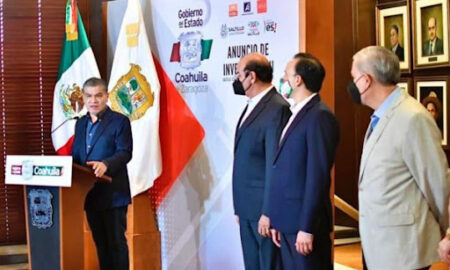LTP Group announces $ 8 million investment in Coahuila
LTP Group confirmed its arrival in Ramos Arizpe, Coahuila, to position the furniture manufacturing industry in the region.
This company, originally from Denmark, will invest 8 million dollars for the installation of its plant in the Amistad Industrial Park, which will have an area of 4,000 square meters and will be generating 300 direct jobs.
The luxury furniture and clothing manufacturing company has nine plants in Lithuania, Belarus, Ukraine and Vietnam, where they have created around 2,000 jobs.
Henrik Holmgaard Olsson, CEO of LTP Group, stated that they came to this region of the country for the economic and strategic benefits to continue consolidating globally.
“We arrived in Coahuila because we heard very good references from the area, when we started negotiations to come they convinced us even more. We are sure that here we will be able to consolidate and stay for a long time, ”he said.
LTP Group offers reliable production, meeting the strictest environmental, health and safety standards without compromising on functionality, quality and design. It also ensures that all products contain safe components for people and the environment, throughout the entire production chain.
It has certifications such as Bluesign, the Global Standard for Organic Textiles (GOTS), Reach Compliance, Fair Wear, the Corporate Social Compliance Initiative (BSCI), Higg Index, Green Energy, the FSC System, Möbelfakta, ISO 9001, of the Law Toxic Substances Control (TSCA) and the Environmental Protection Agency (EPA).











